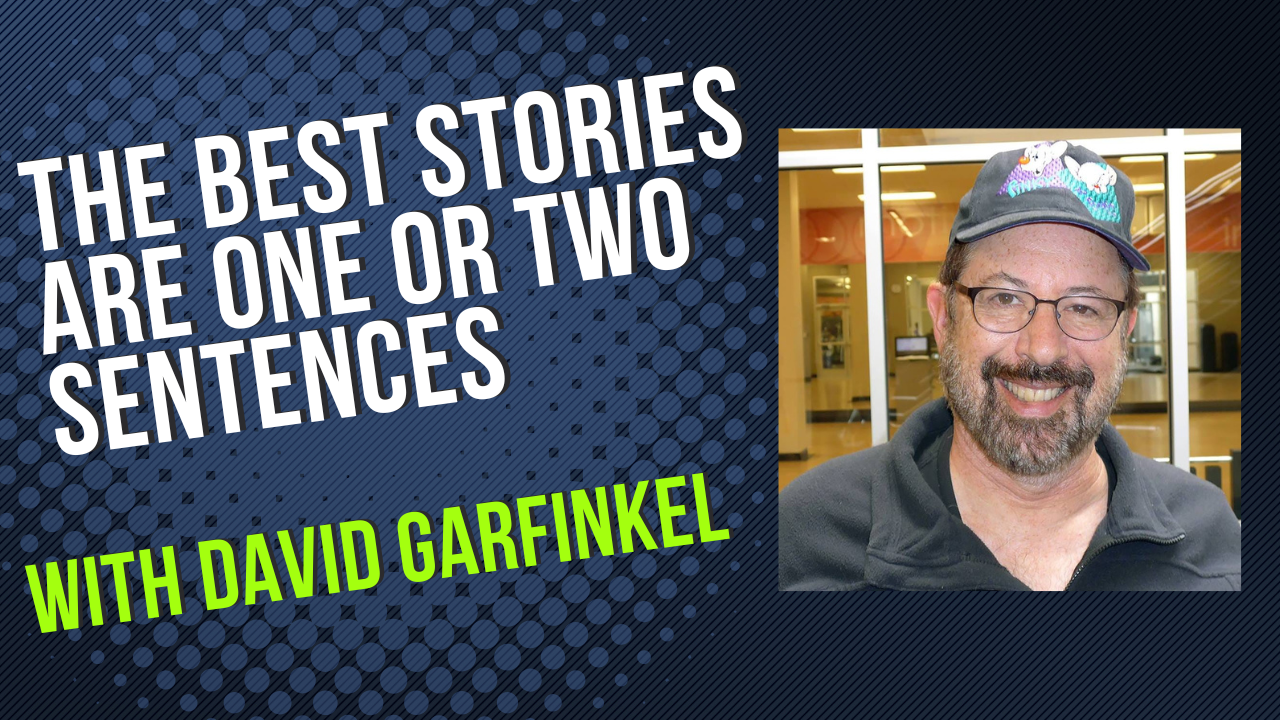
Yesterday we had an incredible mastermind book club session with David Garfinkel, Bond Halbert, Kim Krause Schwalm, and several other book club members.
We were discussing David's book, The Persuasion Story Code, and the conversation was so engaging that we talked for an hour and 42 minutes (when our bladders said "Uncle")
I've been writing copy for over 20 years, and this discussion completely changed how I think about writing persuasive copy.
The Power of Short Stories
Here's something that surprised me: one or two-sentence persuasion stories actually outperform long, elaborate narratives in marketing copy.
David explained that our brains are wired for story, but we don't need the full hero's journey every time.
Instead, these micro-stories hit specific emotional triggers and move prospects through the buying process more effectively.
Think about it as precision strikes rather than carpet bombing.
Each short story serves a specific purpose and resonates because it's targeted and relatable.
Copywriting as Assembly, Not Writing
I've been studying Eugene Schwartz and his book Breakthrough Advertising for over a decade.
He had this brilliant insight that "copywriting is not writing, it's assembling."
David expanded on this by explaining that effective copy uses multiple story building blocks rather than one long narrative.
You might have a past story showing where the customer has been, a present story addressing their current pain, a future story painting the transformation, a trust story building credibility, and a reassurance story calming their fears.
Each piece works together like LEGO blocks to create what Schwartz called "a city of desire."
This completely reframes the copywriting process from creative writing to strategic assembly.
AI is a Tool, Not a Replacement
We weren't planning to talk about AI, but the group had a fascinating discussion about AI in copywriting.
David put it perfectly when he said, "AI is a parrot on top of a supercomputer. It has no emotion, no feelings, no strategic thinking ability."
The consensus was that AI can be incredibly powerful, but only when directed by humans who understand frameworks, psychology, and strategy.
Bond Halbert emphasized that you need to train AI on proven frameworks step by step, feeding it examples and refining outputs.
Kim Krause Schwalm added that AI should handle research and first drafts, but humans must inject authenticity, emotion, and strategic thinking.
The key is using AI as an assistant, not abdicating your role as the strategist.
Addressing Objections Before They Arise
One of the most practical takeaways was about handling buyer objections proactively.
David identified four common objections that kill sales:
- Cost (too expensive)
- Trust (don't believe you)
- Time (takes too long)
- Qualification (not for me).
The breakthrough insight David shared is that you should address these through stories before prospects even consciously think them.
Stories that present alternatives and calm fears are more effective than direct statements because people trust information delivered through narrative more than claims.
Testimonials are particularly powerful here because they're objection-handling stories from real customers.
Psychology Trumps Craft
Perhaps the most important insight was that understanding buyer psychology matters infinitely more than having a perfect writing technique.
David emphasized that you need to deeply understand your prospect's mindset, desires, fears, and objections.
The group discussed how people are wired to remember stories more than facts and data, which is why story-based copy converts better.
"Story is a plan. A story has a plot. We think in stories before we had language."
This means focusing on what the copy will do for the buyer, not how clever your wordplay is.
Authenticity and emotional resonance beat flashy language every time.
Five Quotes Worth Remembering:
"Copywriting is not writing, it's assembling. You have these little building blocks to create a city of desire." - Gene Schwartz
"AI is a parrot on top of a supercomputer. It has no emotion, no feelings, no strategic thinking ability." - David Garfinkel
"Short persuasion stories work better than long ones because they're targeted and specific." - David Garfinkel
"People are wired to remember stories more than facts and data." - David Garfinkel
"Answering objections with stories that show alternatives and calm fears is crucial. It's best done before those objections even happen." - David Garfinkel
What I'm Doing Next
I'm going to practice writing one to two-sentence persuasion stories.
It feels overwhelming to me, but I'm sure I'll eventually figure it out.
>>> Watch the Mastermind Book Club replay here
I'd love to hear your thoughts after you watch the replay.
Let me know if you want to discuss any of these ideas further.
Ted
P.S. Tom Ruwitch and I would love to have you join our Mastermind Book Club.
There's no charge, and every month we feature business and marketing books we're reading.
>>> Sign up here

